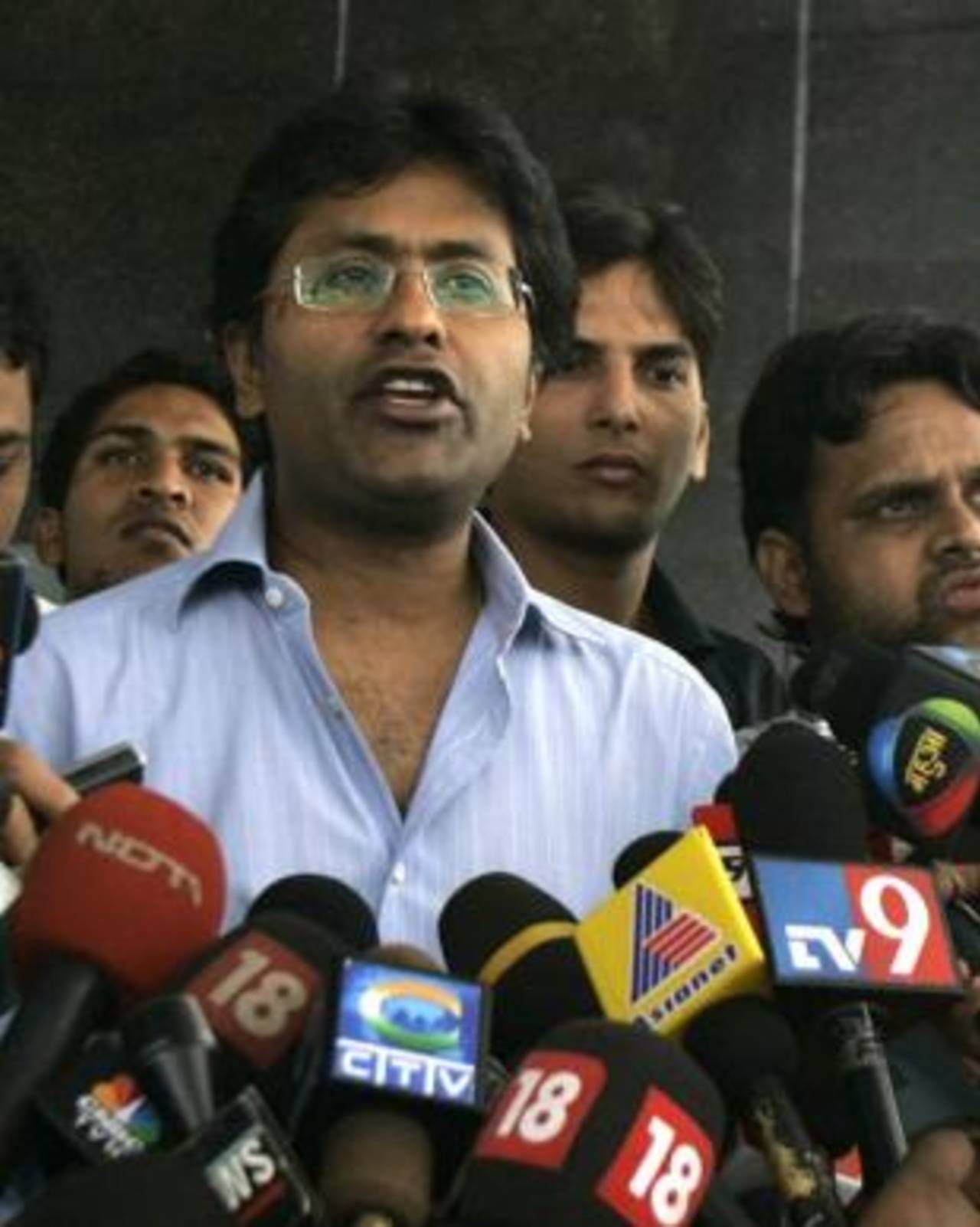An opportunity missed
The IPL could have used the move to South Africa to globalise itself, but it has come across as an imperialist enterprise instead
26-Mar-2009

Modi will not sully the IPL's name with talk of globalisation • Associated Press
You've got to hand it to Lalit Modi. The International Olympic Committee accepts years of free hospitality before it doles Games out; super Samaranch Modi signs off in two days. So the Indian Premier League has a home, even if its degree of Indianness is altered - some would say lessened, although it might also have increased.
The relocation is already replete with ironies. In the 1990s, the Board of Control for Cricket in India was the great champion of a rather muddled strategy to "globalise" cricket, personified by the giddying rise of its secretary Jagmohan Dalmiya to the presidency of the International Cricket Council. Leave out the intervening decade and it might almost seem that his hopes have fructified: the IPL will be organised in one country, staged in another, involve teams represented by players of all nations, and reach a vast global television audience through World Sport Group.
Except that the IPL's progenitor, Dalmiya's sometime nemesis, will not sully his brainchild's name with talk of globalisation. He has stressed that the priority is the entertainment of the Indian fan, game times dictated by the convenience of domestic television timeslots, arrangements to the satisfaction of the lanyard-wearing classes. Modi's idea of the benefit to South Africa is not such joy and excitement that the IPL might bring, but the sterile measure of the hotel rooms and airline tickets that the IPL will consume.
Watch for subtle changes to this rhetoric in coming weeks: the BCCI might even indulge in some high-sounding rhetoric about building bridges and making new friends. But they'll be faking it: the relocation is a desperate measure that they strove to stave off until it was very nearly too late. The hurry now is an index of the BCCI's obduracy as well as its opportunism. Since Mumbai, it has been impossible merely to wish security concerns away, but it didn't stop the BCCI trying. Modi was still dismissing rumours of a relocation as containing "absolutely no truth" last Saturday.
The fact is that the IPL would be occurring in Antarctica if there were direct flights, and it suited World Sport Group. And in that sense the Indianness of the tournament is more pronounced because it is imposed: the point is not to bring an attraction to another country but to create a satellite India on that country's soil. And there is an old-fashioned word for such a form of exploitation: imperialism.
For sure, the IPL will leave some money; it may leave a cultural imprint; it may even leave some goodwill. But that will happen coincidentally: it is not an objective; it is not, really, a priority
Not a word you hear a lot of in India - except, perhaps, with a contemptuous sneer. But, if by accident and effect rather than strategy and intention, and in the short-term rather than the long, this is essentially an imperial exercise. South Africa accepts colonisation, India runs the show for its own benefit, then scarpers home. The Raj took a few hundred years over it; the IPL in South Africa, because its imperialism is of the consumer-capitalist rather than the political or religious sort, will do the deed in six weeks. For sure, the IPL will leave some money; it may leave a cultural imprint; it may even leave some goodwill. But that will happen coincidentally: it is not an objective; it is not, really, a priority.
The funny thing is that, if Modi did but know it, cricket has a huge opportunity in April and May. The stars of 2007's World Twenty20 Championship were the South African spectators, who embraced every visiting country with warmth and glee. Games between Indian and Pakistan were played between crowds almost as enthusiastic and energised crowds as any in Lahore or Mumbai. For that reason alone, South Africa is a vastly superior venue to England. The IPL looms as an ideal complement to the recent title fight with Australia: the best Test matches anywhere in four years.
For cricket to make the most of that opportunity, however, the IPL would have to resile somewhat, even if not totally, from the stance that it is purely and simply a "domestic" tournament - a stance maintained chiefly to remain outside the jurisdiction of the International Cricket Council. A genuine cricket visionary would now be playing up the idea of making IPL a gift and an example to the world rather than an Indian self-celebration involving some incidental beneficiation of the South African hotel and airline industries - by reinstating the luckless Pakistanis, for instance, or pledging the franchises to coach locally, as the Australians did so successfully on their recent tour. At least at the moment, however, Modi does not seem to be that visionary: he has an eye always on his home market, origin of his power, and, perhaps even more importantly, location of his enemies. And until some gesture towards making the IPL more like an International Premier League, an Imperial Premier League is what it will be. You have to hand it to Lalit Modi all right. One wonders how soon people will get sick of doing that.
Gideon Haigh is a cricket historian and writer